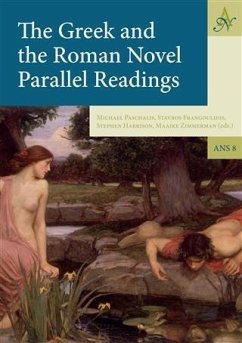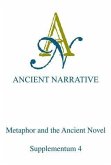Ancient Narrative Supplementum 8 is the first volume to be dedicated entirely to parallel readings of the Greek and the Roman novel. As a rule, publications taking a comprehensive look at the ancient novel treat the Greek and the Roman novels independently of each other, or at most discuss standard thematic categories. It is intriguing that a sharp distinction between the Greek and the Latin novels should have ever existed and that it should be tacitly maintained at the present time. Of the three surviving Latin novels, Apuleius' Metamorphoses has a Greek model, Petronius' Satyrica bears distinct traces of Greekness, and the Historia Apollonii strongly resembles the Greek ideal novel, especially Xenophon's Ephesiaka. The discovery of new papyrus fragments of Greek fiction (Lollianos' Phoinikika, the Iolaos and the Tinouphis fragments) has shown that low-life, comic, and sensational features are not the exclusive province of the Latin novel. Recent chronological revisions have squeezed the dates of the earliest Greek novels into the period between 41 and 75 A. D., thus envisaging the birth of the Greek novel and that of the Roman Satyrica as contemporary or near-contemporary events. The need to re-examine the relations between the two main traditions of the ancient novel in the context of a unified Greco-Roman tradition emerges today as more urgent than ever. The portrayal on the cover page of this volume of Echo and Narcissus, of self-reflection and reduplication of sound, symbolizes a pictorial challenge to look at the dialectics of the Greek and the Latin novels and appreciate their intimate relationship.The parallel readings of the present volume explore various issues in Greco-Roman fiction: political accommodation in coming-of-age novels, the language and practice of magic, narratives of failure, textual considerations and narrative meaning, hidden authors, proposals and criteria for dating, the access to knowledge, plot structures, religion and narrative, the fortunes of Athenian Hellenism, vision and narrative, attitudes towards Roman imperial rule, and the motif of the stolen cup.
Dieser Download kann aus rechtlichen Gründen nur mit Rechnungsadresse in A, B, BG, CY, CZ, D, DK, EW, E, FIN, F, GR, HR, H, IRL, I, LT, L, LR, M, NL, PL, P, R, S, SLO, SK ausgeliefert werden.









